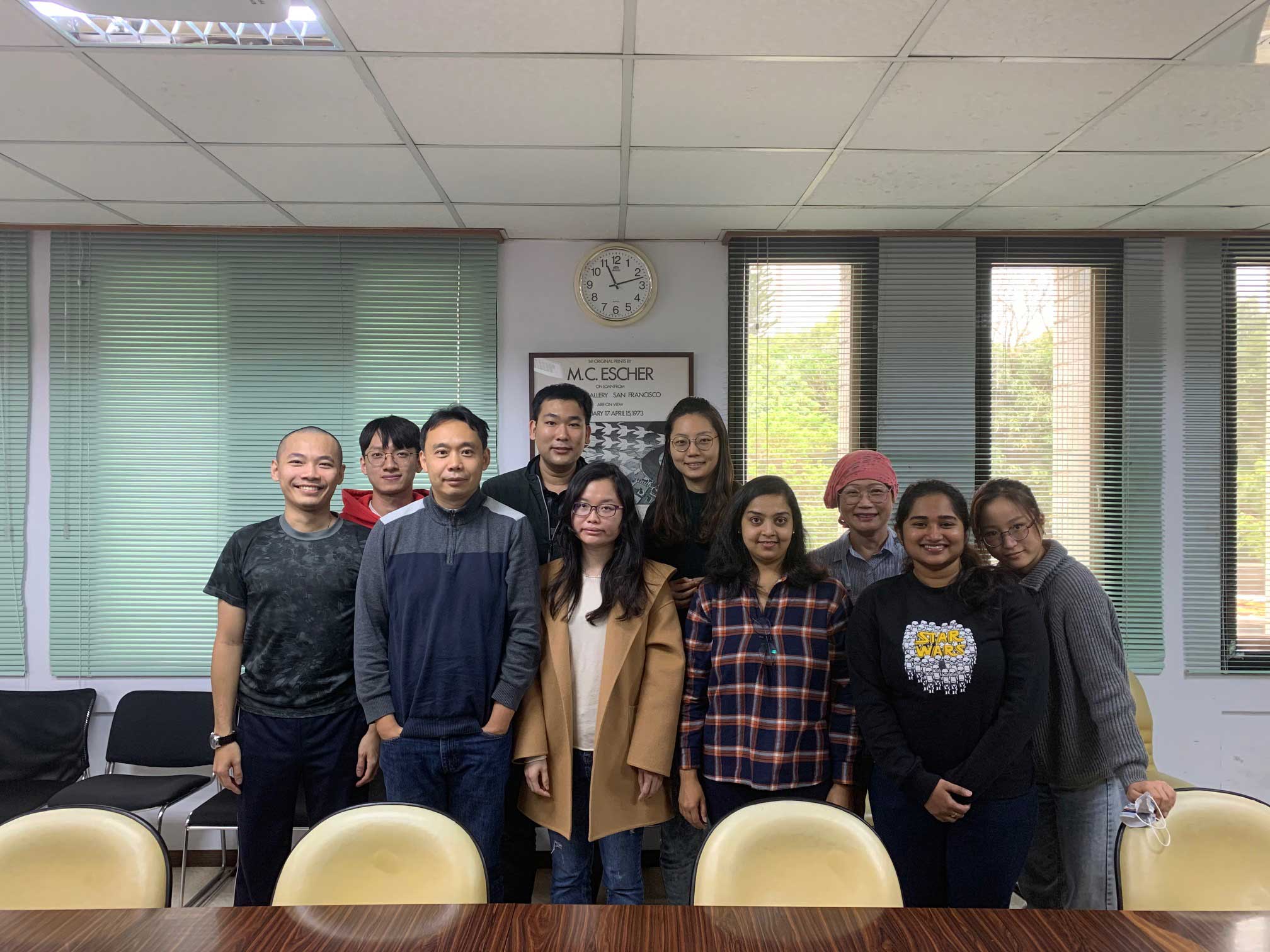Molecular and structural cell biology
The spatial organization of the cellular cytoplasm has fascinated cell biologists, particularly since the introduction of advanced microscopy techniques. We are interested in elucidating how complex microtubule arrays, on the micron scale, are organized and their functional roles in critical cellular processes, such as mitotic progression, ciliogenesis, and neuronal maturation. Moreover, we examine how nuclear transport factors modulate the organization of microtubule-based structures (e.g., spindle and anemone) via canonical and non-canonical activities. Beyond fundamental cell biology, my research extends to understanding the molecular pathways underlying cancer drug resistance. Given the significance of tubulin as a target for anti-cancer drugs, we are focusing on elucidating the mechanisms responsible for drug resistance. This study aims to deepen our understanding of cancer drug resistance and potentially uncover new avenues for the development of more effective cancer treatments.
Our methodology involves the reconstitution and imaging of microtubule-based structures from their constituent protein subunits. This is complemented by an interdisciplinary approach, incorporating techniques from structural biology, biophysics, and cellular biology to uncover regulatory mechanisms. Through this integrative approach, we aim to discover the mechanistic links between the cytoskeletal organization and vital cell functions. Ultimately, our goal is to reveal the mechanistic connections between cytoskeletal organization and essential cellular functions, with potential implications for both basic science and therapeutic applications.
Schematic for micron-sized microtubule arrays of interphase microtubule (A), mitotic spindle (B), and axonemal microtubule (C) and microtubule bundles in dendrites (D). Various regulatory factors control the organization of microtubule arrays derived from protein building blocks.
Tubulin-binding domain of HURP interacts with -tubulin, HURP competes directly with the vinorelbine, one of a vinca alkaloid-based chemotherapeutic agents.
- PDF, 2015, Lab. Cell Biology and Chemistry, The Rockefeller Univ.
- Ph.D., 2009, Lab. Cell Biology, The Rockefeller Univ.
- MS, 2000, Dept. Biochemistry, Natl. Yang-Ming Univ.
- BS, 1998, Dept. Biology, Fu-Jen Catholic Univ.
- 2015-2018, Newly-Appointment Academic Research Grants of Academia Sinica
- 2015-2018, Young Talent Investigator Recruitment Award, Ministry of Science and Technology
- 2017-2021, Career Development Award
- 2023-2027, Investigator award
- 2023, Academia Sinica Early-Career Investigator Research Achievement Award
- 2023, NSTC Outstanding Research Award
Publications arising from my own independent laboratory (Since 2015; corresponding* only)
- Saju, A., Chen, P.P., Weng, T.H., Tsai, S.Y., Tanaka, A., Tseng, Y.T., Chang, C.C., Wang, C.H., Shimamoto, Y., Hsia, K.C.*(2024). HURP binding to the vinca domain of β-tubulin accounts for cancer drug resistance. Nature Communications 15(1): 8844.
- Liao, C.C., Wang, Y.S., Pi, W.C., Wang, C.H., Wu, Y.M., Chen, W.Y.*, Hsia, K.C.* (2023). Structural convergence endows nuclear transport receptor Kap114p with a novel transcriptional repressor function toward TATA-box binding protein. Nature Communications 14(1):5518.
- Shankar, S., Hsu, Z.T., Ezquerra, A., Li, C.C., Huang, T.L., Coyaud, E., Viais, R., Grauffel, C., Raught, B. Lim, C., Lüders, J.*, Tsai, S.Y.*, Hsia, K.C.* (2022) A γ-tubulin complex-dependent pathway suppresses ciliogenesis by promoting cilia disassembly. Cell Reports 41(7), 111642.
- Shih, P.Y., Shankar, S., Lee, S.P., Fang, Y.L., Chen, H., Wang, T.F., Hsia, K.C.*, Hsueh, Y.P.* (2022). Zinc-induced phase transition modulates synaptic distribution of autism-linked CTTNBP2. Nature Communications 13(1):2664.
- Chang, C.C., Hsia, K.C.* (2021) More than a zip code: global modulation of cellular function by nuclear localization signals. FEBS J. doi: 10.1111/febs.15659 (Invited review).
- Huang, T.L., Wang, H.J., Chang, Y.C., Wang, S.W., Hsia, K.C.* (2020) Promiscuous binding of microprotein Mozart1 to 𝛾-TuRC mediates specific subcellular localization to control microtubule array formation. Cell Reports 31(13), 107836.
- Wieczork, M., Huang, T.L., Urnavicius, L., Hsia, K.C.*, Kapoor, T.M.* (2020) MZT proteins form multi-faceted structural modules within the 𝛾-tubulin ring complex. Cell Reports 31(13), 107791 (Cover of the issue).
- Liao, C.C., Shankar, S., Pi, W.C., Ahmed, G.R., Chen, W.Y., Hsia, K.C.* (2020) Karyopherin Kap114p-mediated trans-repression controls ribosomal gene expression under saline stress. EMBO reports, 21(7):e48324.
- Chang, C.C., Chen, C.J., Grauffel, C., Pien, Y.C., Lim, C., Tsai, S.Y.*, Hsia, K.C.* (2019) Ran pathway-independent regulation of mitotic Golgi disassembly by Importin-α. Nature Communications 10(1):4307.
- Chang, C.C., Huang, T.L., Shimamoto, Y., Tsai, S.Y., Hsia, K.C.* (2017) Regulation of mitotic spindle assembly factor NuMA by Importin-β. J. Cell Biol. 216(11):3453-3462.
Publications arising from earlier work (First author only)
- Hsia, K.C., Wilson-Kubalek E,M., Dottore A., Hao, Q., Tsai, K.L., Forth S., Shimamoto Y., Milligan, R.A., Kapoor, T.M. (2014) Reconstitution of the augmin complex provides insights into its architecture and function. Nat. Cell Biol. 16(9):852-863 (Cover of the issue).
- Hsia, K.C., Hoelz, A. (2010). “Crystal structure of α-COP in complex with ϵ-COP provides insight into the architecture of the COPI vesicular coat” Proc. Natl. Acad. Sci. 107(25):11271-11276.
- Hsia, K.C., Stavropoulos, P., Blobel, G., Hoelz, A. (2007). “Architecture of a coat for the nuclear pore membrane.” Cell 131(7):1313-1326.
- Hsia, K.C., Chak, K.F., Liang, P.H., Cheng, Y.S., Ku, W.Y., Yuan, H.S. (2004). “DNA binding and degradation by the HNH protein ColE7.” Structure 12(2):205-214.

